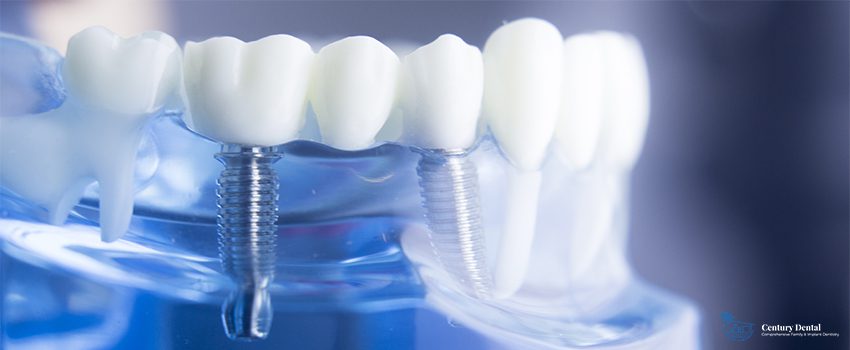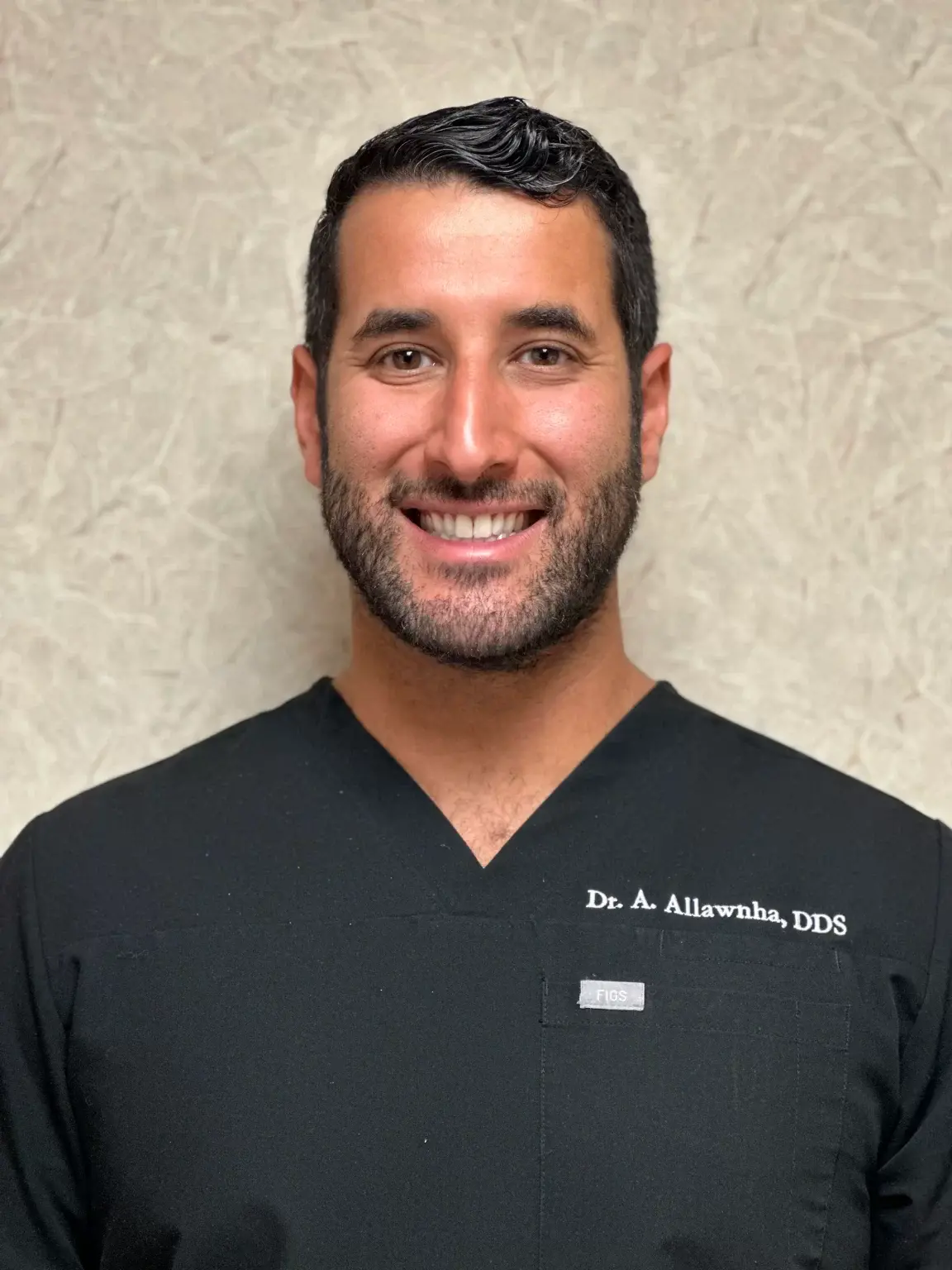People lose teeth for several reasons. Fortunately, dentures were invented to replace missing teeth. Dentures have been widely used for as long as humanity has been around. Dentures have advanced a lot since the days of making them from animal teeth and wood. Today, implant-supported dentures are gradually becoming a popular choice for artificial teeth.
An Overview of Implant Dentures
What are dentures?
Dentures are removable artificial teeth used to replace extracted or missing teeth. The dentures are precisely measured and molded to the wearer’s mouth. They then get glued in place using dental-grade resins. This ensures that they will remain secure when eating and talking.
A Dentures definition is almost interchangeable with removable teeth, but, in recent years, dentures definition translates to a sturdier type of replacement teeth, which is called an implant supported denture.
What are denture implants? Is it different from common dentures?
Implant-supported dentures are considered to be one of the newest procedures when it comes to artificial teeth. The whole procedure of installing dental implants often takes two to seven months. First, the dentist will need to perform surgery to expose the bone beneath your gums. The second procedure involves drilling into the jawbone and placing screw-like posts that will serve as the support for the prosthetic crown. The rest of the months are dedicated to the healing process of the gums and the jaw, and most importantly, the bonding of the implants to the bone.
Unlike traditional dentures, these dental implants are permanent. The main use of these dental implants is to help a patient’s biting force.
Commonly Asked Questions Regarding Dental Implants
It’s understandable for patients to be cautious with dental procedures and ask, “What are dental implants?” Dental implants are fairly new to the public consciousness and can be intimidating. For those considering getting implants and asking about dentures definition, these are common concerns patients have before getting this procedure done.
1. Who is eligible for dental implants?
Since the procedure involves the lower mandible or the jawbone, only patients with a good jaw structure are eligible for implant-supported dentures. The success of the procedure highly depends on a strong and intact jaw. Patients who experience bone deterioration are not eligible for dental implants.
2. Are there any restrictions after the surgery?
The healing process for dental implants takes two to seven months, depending on the overall health of a patient’s mouth. There are no restrictions when it comes to food after the procedure. Dentists may still advise which types of food should be avoided for the first few months after installing implant supported dentures.
As soon as the patient’s’ implants are healed, regular eating habits can be resumed.
3. How much do implant dentures cost?
This is probably the first question patients ask when dental professionals suggest permanent dentures. Considering dental implants require surgery, they are quite expensive compared to traditional dentures. Some factors may contribute to the cost of the procedure. For instance, dentists need to consider the type of implant that will be used and how many implants are needed.
Multiple teeth implant supported dentures cost $9,500 to $25,000 per arch. Meanwhile, full-mouth implant supported dentures cost $25,000 to $50,000. Unfortunately, dental implants are usually not covered by insurance. Before getting dental implants, it is important to talk and clarify with your insurance provider first.
4. Is it safe?
Yes, implant-supported dentures are generally safe. Plus, dentists give the proper medications to prevent infection and speed up the recovery process.
Advantages of Implant Dentures
Although an implant supported denture is relatively new, it has become a rising star in dentistry as more people are now curious about the procedure. If you are currently weighing the options between traditional dentures and implant-supported ones, here are some advantages in shifting to dental implants.
1. Stability
Implant-supported dentures are drilled through the jawbone by means of osseointegration. The procedure is highly dependent on the strength of the lower mandible. Once the procedure is successful, the patient can be confident about the position of the artificial teeth. The anxiety regarding the dentures sliding off will also disappear.
Aside from aesthetic purposes, denture implants’ stability also helps in mastication (chewing of food). Traditional dentures sometimes hinder people from eating certain foods, especially the tough and chewy ones. With dental implants, patients can now enjoy an unlimited choice of food.
2. Bone Atrophy Prevention
Bone atrophy happens when a tooth is extracted, and the area where the tooth once was is left vacant. Bone atrophy occurs because of the absence of the tooth, especially the roots, in the extracted area. The absence of a tooth signals the body to stop the regeneration process of the jawbone. Through the years, the mandibular bones in an area reduce their density and slowly degrade.
The occurrence of bone atrophy can cause an obvious change in the topography of a patient’s face. People who have dental bone atrophy often appear to have sunken cheeks in the areas where the tooth was extracted.
Dental implants act as artificial teeth that stimulate the lower mandible to regenerate every time it receives stress or damage from chewing.
3. Convenience
Patients who use traditional dentures are required to remove them from the mouth to clean the artificial teeth. The constant removal of traditional dentures slowly removes the dental resin used as adhesive. When the adhesion gradually disappears, the patient is required to go back regularly to his/her dentist.
Dental implants provide the convenience to clean the dentures easily without removing them. Patients who have their dentures implanted only need to brush and floss like usual.
4. Longevity
Unlike traditional dentures, dental implants last longer. As long as a patient observes proper care and hygiene for the newly-installed dentures, there will be no problem with them, especially in terms of durability and endurance.
How To Clean Implant Supported Dentures
Cleaning dental implants is not that different from cleaning traditional dentures or general brushing. However, there are simple ways to clean efficiently dental implants to assure longevity. Aside from brushing and flossing, we give you techniques how to clean implant supported dentures.
1. Brush using short, horizontal strokes.
Even though implant supported dentures are artificial, plaque can still build up around the area. Brushing the teeth in short, horizontal strokes is a basic technique. These short horizontal strokes help clean each tooth and remove the budding plaque efficiently.
Start by brushing on the external parts of the teeth: the abutment pillars and the nearby gum area. Continue with short, horizontal strokes until you reach the inner portions of the mouth and the inner parts of the teeth. Make sure to focus on the crevices in the inner portion of the teeth. Even though you no longer have to worry about tooth decay with dental implants, cleaning those hard-to-reach areas is important because plaque build-up can cause other dental problems such as bad breath.
2. Use Proxabrush.
Proxabrush is a specialized tool used to clean the spaces between each tooth. The Proxabrush is readily available on the market and comes with thin bristles that resemble a mascara brush. Using the Proxabrush on dental implants ensures that your dentures will always be in top shape.
The heads of the Proxabrush are replaceable and should be replaced biweekly to avoid contamination. Using the Proxabrush is not an alternative to the toothbrush, especially when cleaning dental implants. Dentists recommend using it after brushing and before flossing.
3. Consult a dentist.
There are cases when dental implants need thorough cleaning, and the process often includes the removal of the whole denture to check for needed repairs and adjustments. Consulting professionals to clean dental implants is important to ensure that the dentures are still in the right condition and there are no infections in the area.
Regular visits to a dentist will also give you an overview of your dental health. It can give you an idea of how to clean your dental implants accordingly and adjust your consumption of certain foods to keep your teeth in check.
Consulting a dentist can help identify the first signs of wear and tear in dental implants. Visit your dentist regularly for consultations, check-ups, and repairs.
Century Dental Gives You a Beautiful Smile Using Implants
Teeth extraction and loss are a common part of the body’s development. Installing dentures to the area where the tooth was extracted helps minimize the damage brought by continuous chewing. If you need dentures, dental implants, or a simple orientation on what are dentures, Century Dental is here.
Century Dental is your dentist in Treasure Island, FL. With our dentists taking care of teeth, your perfect smile is sure to last a long time.
Contact us now and learn what are implant supported dentures.





